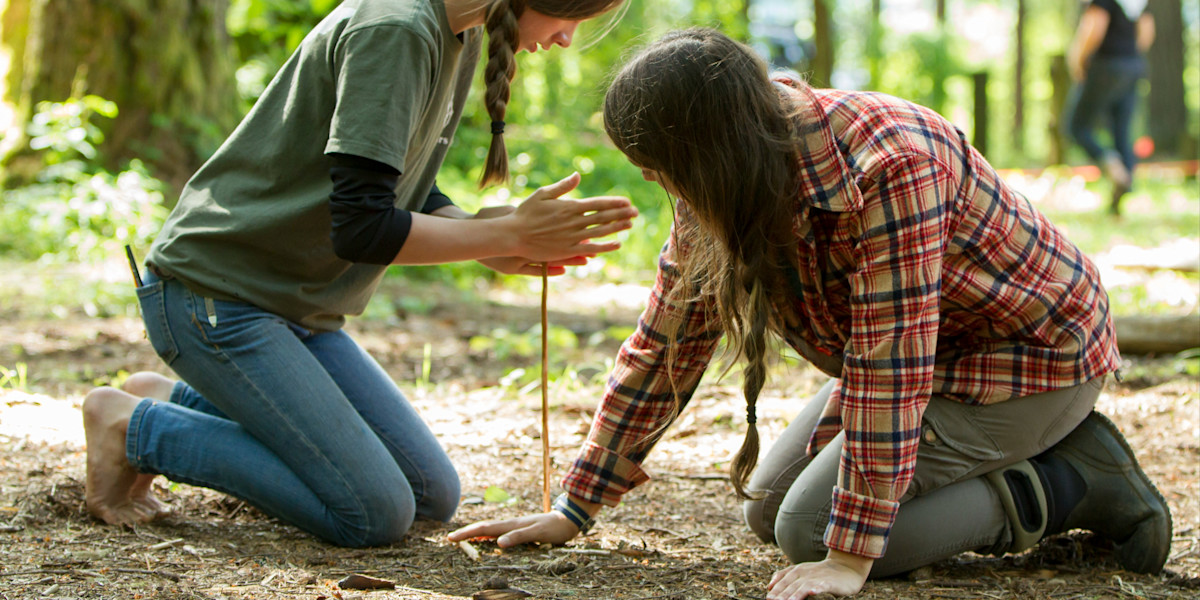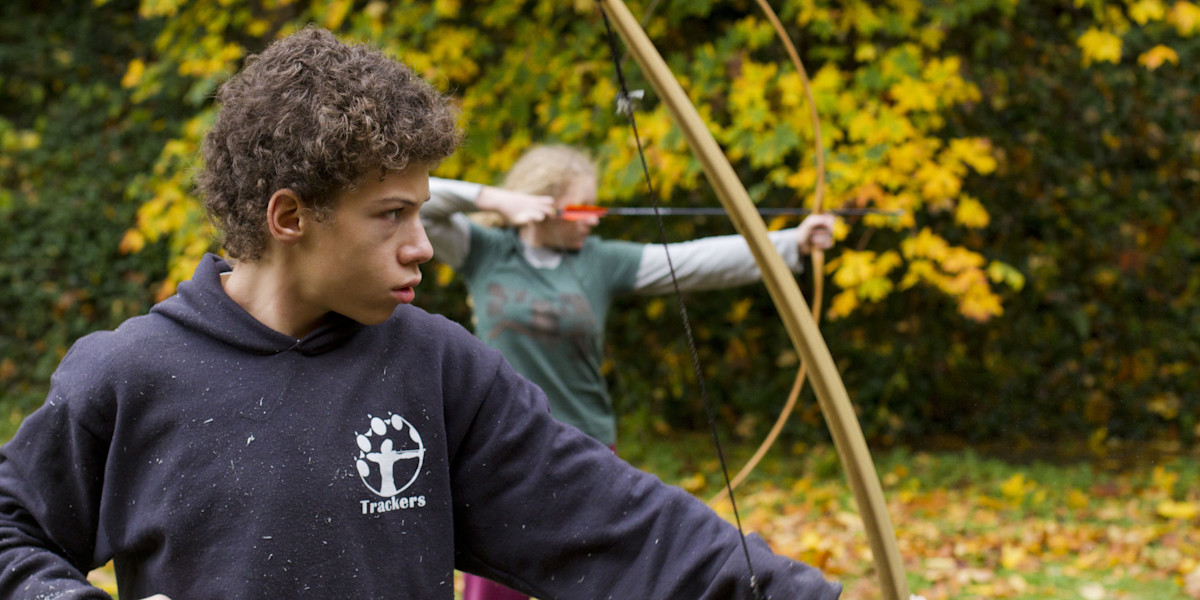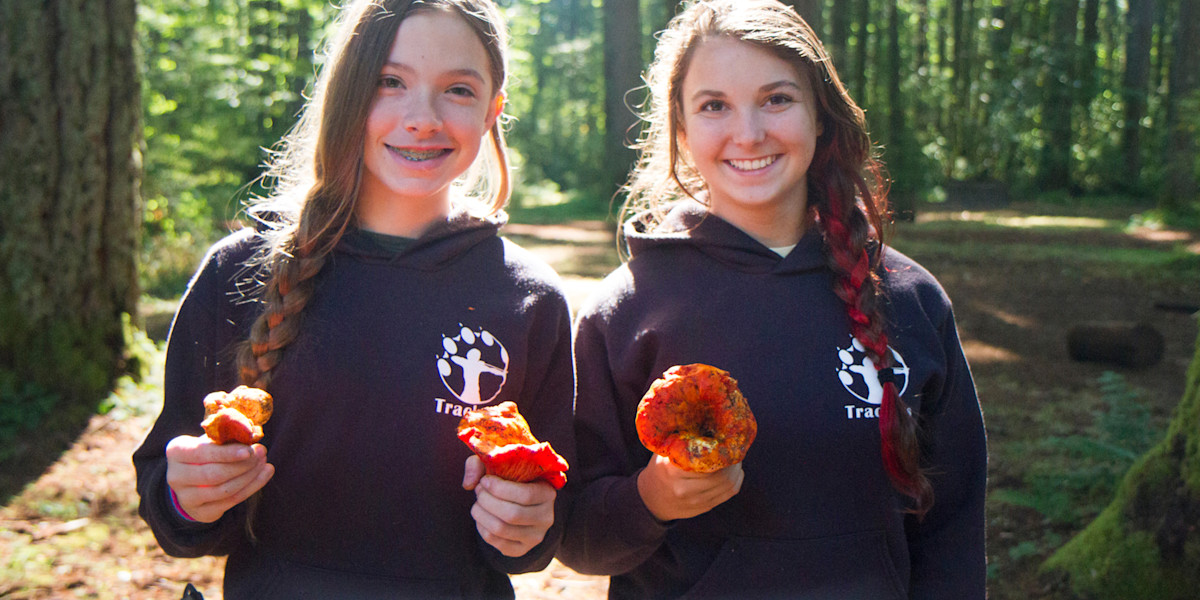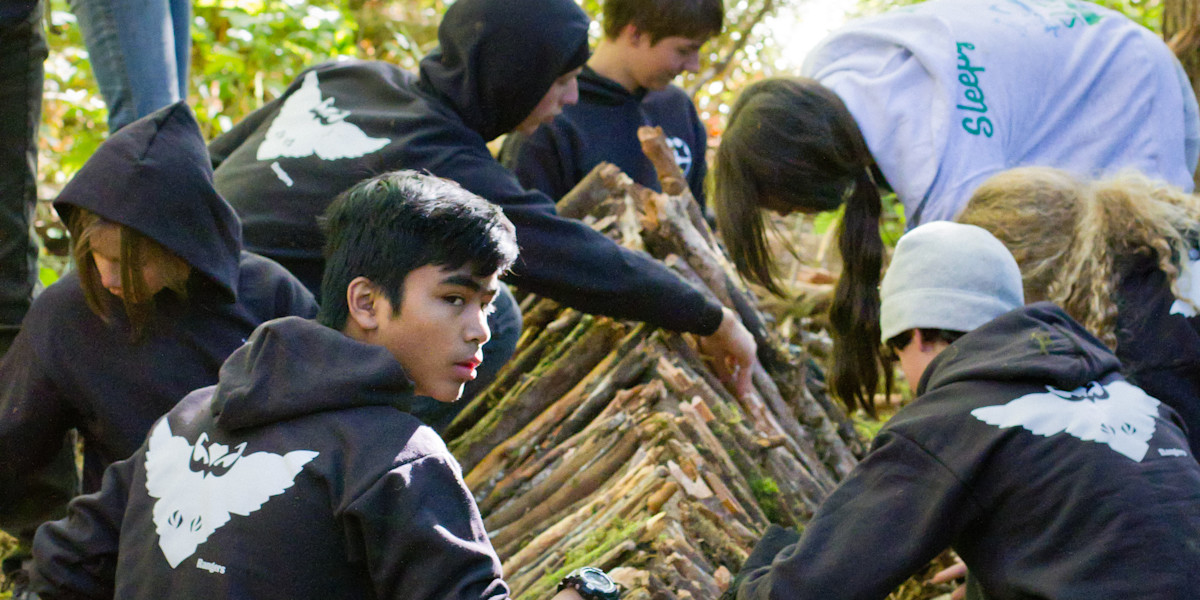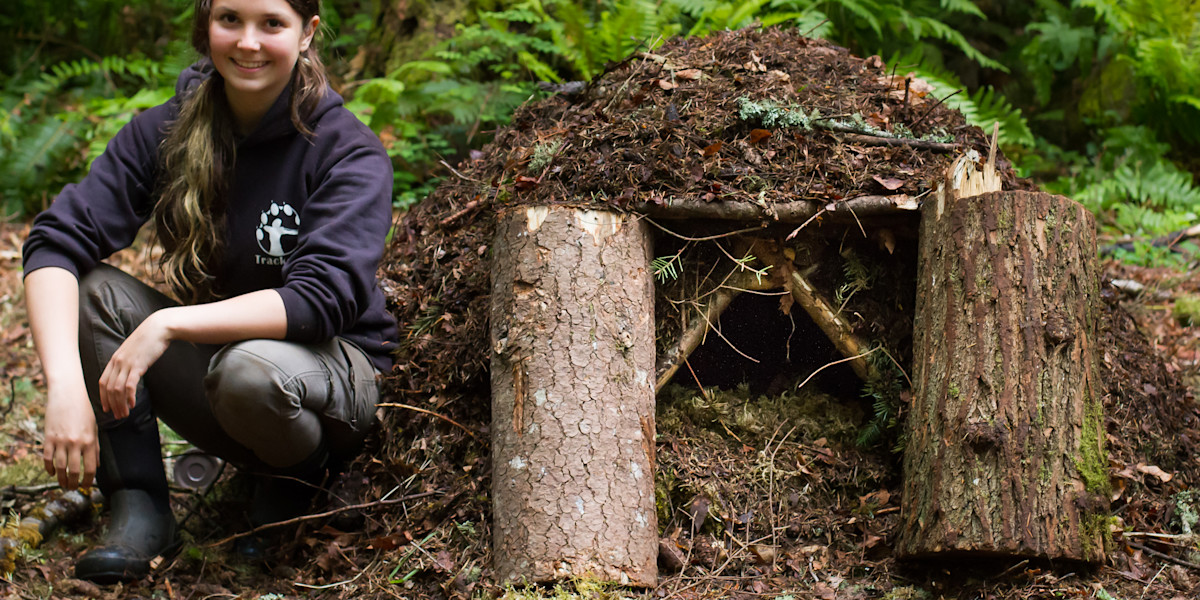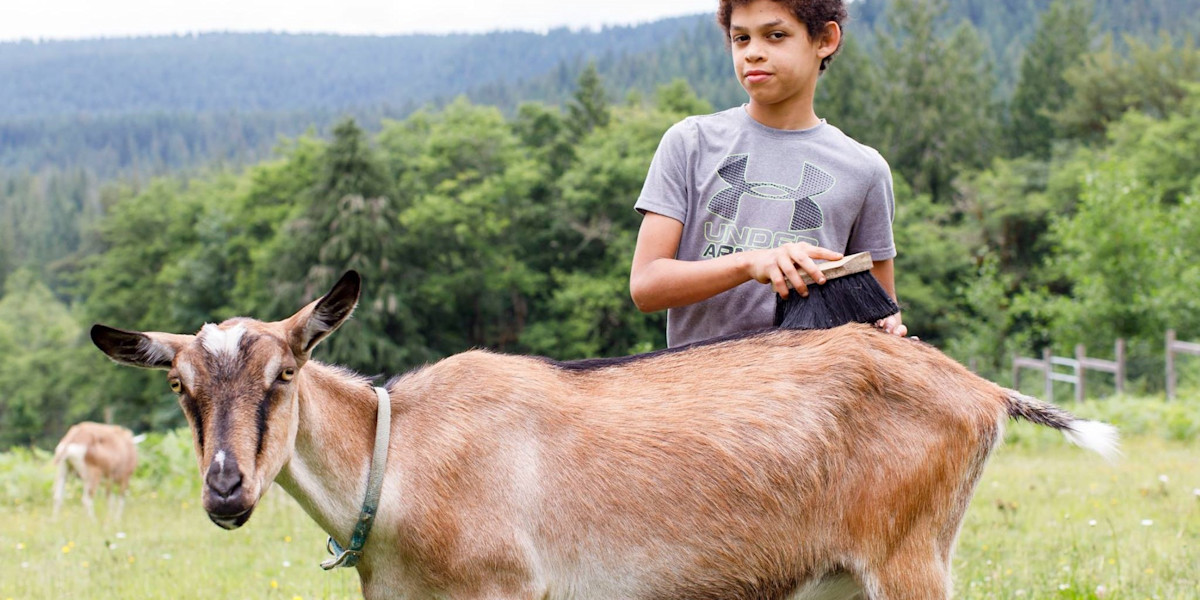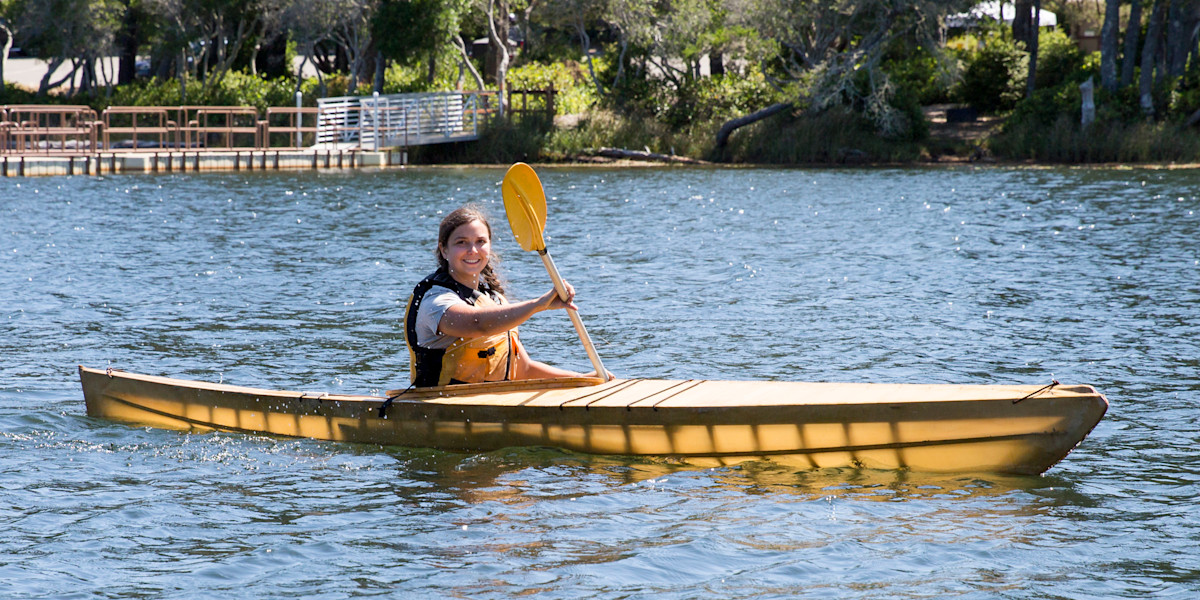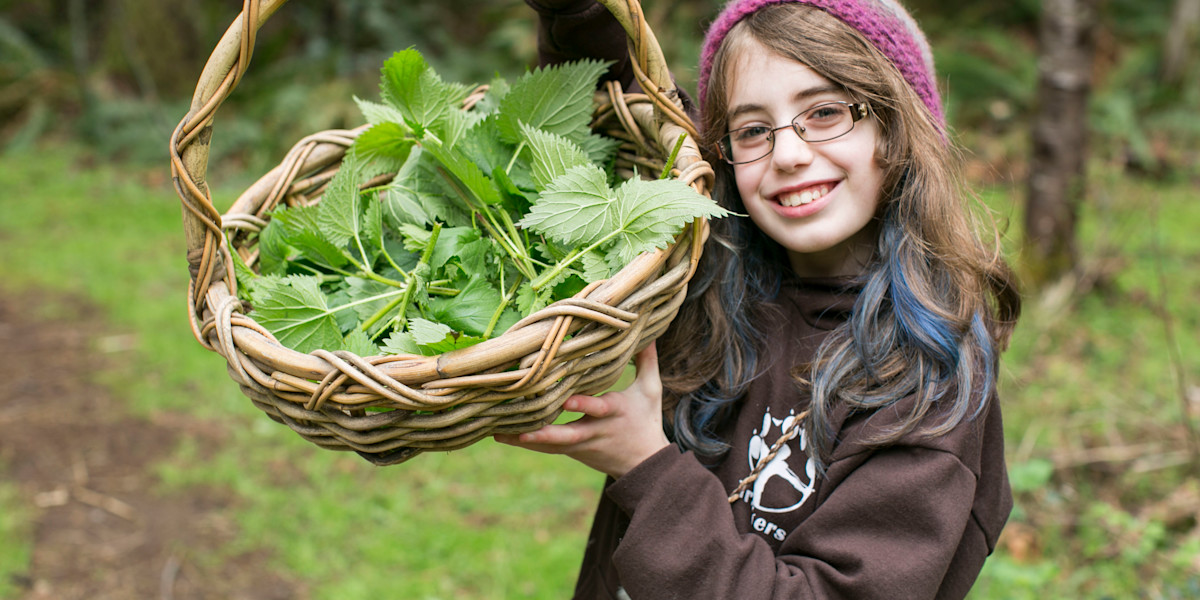Choose Your Schedule
5 Field Saturdays 9:00 AM - 4:00 PM
4 Camping Overnights Friday - Sunday
+ Graduation May 9, 2026
First Year: Join any available Fellowship schedule in your age range.
Returning: Choose your Fellowship schedule to rejoin your group.
Make-Up Days: We understand that plans can change! Each Apprenticeship includes one make-up day per year. When space allows, your child may join another Fellowship session. Please note that make-up for overnight weekends are limited due to fewer alternative options. We also offer make-up days for weather-related postponements.
Frequently Asked Questions
Does this program require prior experience?
No. While familiarity with Trackers activities can help, a motivated student will succeed in learning the Trackers Skills described here.
What are the sleeping accommodations?
Campers sleep in tents provided by Trackers, or they may use their own with approval from Trackers Guides to ensure functionality. Tents are all-weather and protect against rain and other elements. Campers must bring their own cold-weather sleeping bag and pad—equipment recommendations are provided upon registration. Campers learn to care for their tent and organize their Trackers Kit (gear and clothing) to stay clean, dry, and well-maintained. Nearly all activities take place outdoors. This is an authentic camping experience.
What kind of meals do student Trackers eat?
Meals are often served outdoors and may be cooked over an open fire or on personal camp stoves, depending on the season and logistics. Food is simple, similar to backpacking or expedition-style meals—such as hearty stews. This is not a camp for picky eaters. We may eat food we’ve butchered, foraged, or processed from the wild. Due to the rugged nature of this camp, accommodating specialized diets can be difficult. If your child has a severe food allergy, contact us. We may be able to coordinate with your Medical Doctor (MD) to adjust meal plans.
What is your medication policy?
We do not administer medication. Student Trackers are responsible for their own self-care, including remembering and taking their medication. This promotes independence and aligns with the program’s focus on self-sufficiency. All medications must be in original packaging, labeled with name and dosage, and kept in the student’s backpack. If a student carries an EpiPen or inhaler, they must keep it on them and inform the instructor of its location for emergencies.
What gear should we pack?
We provide gear recommendations for the Trackers Kit (gear and clothing) to prepare students for all-weather camping. The kit includes a sleeping bag, sleeping pad, outdoor clothing, and personal items. It also includes the required Trackers Uniform: a designated wool shirt-jacket, wool pants, and a Team patch. Before the program begins, we send packing suggestions with links to help families stock the kit efficiently and affordably.
Can my child bring their cellphone?
No—phones must be left at home. This is a strict rule. Electronics distract from developing real-world observation skills in the outdoors. Tracker Guides carry cellphones for necessary contact. While not a rule, we discourage both short- and long-term social media use. Digital distractions skew perspective and hinder situational awareness—a key survival skill. Developing this awareness requires being fully present in the real world.
How much time should my child commit to independent study?
This is up to the student. Independent training is intentional and just as important as guided instruction. The goal is self-sufficiency and competence. While not required, we suggest 2–4 hours per week for personal study in skills and tracking. This could include naturalist journals, backyard nature mapping, reading, or foraging seasonal wild foods like chestnuts and acorns. Parents may need to support access to greenspaces. We also encourage age-appropriate students to begin learning to drive—an important step toward independence and accessing wilderness areas for skill development.
How does the optional Leader-in-Training (LIT) opportunity work for all grades?
Students in Grades 5–12 may serve as a Leader-in-Training (LIT) for other weekend Apprenticeship programs outside of their primary program. LITs connect with and inspire younger campers, learning leadership through guided mentorship. While we ask for a consistent schedule, attendance is not required. LITs are present for their own growth and educational experience, and do not count toward student-to-staff ratios. All LITs must follow the LIT Code of Conduct and are held to high expectations as role models. Trackers A-Team Apprenticeship includes four free weeks as an LIT for summer day camps if the Apprentice meets standards throughout the year.
What is the default role of Grades 11–12 students as Leaders-in-Training (LIT)?
All overnight Apprenticeship students in Grades 11–12 are automatically considered Leaders-in-Training (LIT) as part of their primary program. LITs step up within the Trackers community, gaining hands-on leadership experience while learning from mentors and guides. They actively support the team and help younger Trackers under supervision, passing on knowledge from one generation to the next. This integrated role sharpens their skills and prepares them to be future mentors. While on program as LITs, Grades 11–12 are held to high standards and must consistently demonstrate responsibility, initiative, and care for others to continue in the role.
What am I getting my child and our family into?
Trackers offers genuinely fun summer camps, but the Trackers A-Team goes beyond the typical experience. Its foundation is built on deep outdoor skills, taught through training as rigorous and comprehensive as martial arts. This demands focus and effort from the Apprentice, improving both academic and physical ability. Ecological thinking—especially in tracking—fosters understanding of complex systems, patience, humility, and strategic thinking.
What is the role of program mentors?
Program mentors are among Trackers’ best, overseeing curriculum and logistics for field days. They tailor their mentoring to each team, regularly checking in on student well-being. Mentors are available to families for advice on skills, independent study locations, and student progress.
Have Questions?
For any questions, please contact our Family Success team.
